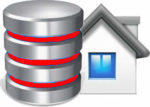Access Control
exit – terminate a shell (see “man sh” or “man csh”)
logout – sign off; end session (C shell and bash shell only;)
passwd – change login password
rlogin – log in remotely to another UNIX system
ssh – secure shell
slogin – secure version of rlogin
yppasswd – change login password in yellow pages
Communications
mail – send and receive mail
mesg – permit or deny terminal messages and talk requests
pine – send and receive mail
talk – talk to another logged-in user
write – write to another logged-in user
minicom – terminal for modem
Programming Tools
ar – archive and library maintainer
as – assembler, specific to each machine architecture
awk – pattern scanning and processing language
bc – online calculator
cc – C compiler (xlc on ADS)
csh – C shell command interpreter
dbx – source-level debugging program
f77 – Fortran compiler (xlf on ADS)
gdb – GNU Project debugger
gprof – display profile of called routines
kill – kill a process
ld – the UNIX loader
lex – generate lexical analysis programs
lint – check C source code
make – maintain large programs
maple – symbolic mathematics program
math – symbolic mathematics program
nice – run a command at low priority (see “man nice” or “man csh”)
nohup – run a command immune to hangups
pc – Pascal compiler (xlp on ADS)
perl – Popular script interpreter
prof – display profile data
python – Python programming language
ranlib – convert archives to random libraries
sh – Bourne shell command interpreter
yacc – generate input parsing programs
xcalc – graphical calulator under x
Documentation
apropos – locate commands by keyword lookup
find – locate file (i.e. find . -name *.tex -print)
info – start the info explorer program
man – find manual information about commands
whatis – describe what a command is
whereis – locate source, binary, or man page for a program
Editors
ed – line-oriented text editor
emacs – screen-oriented text editor
ex – line-oriented text editor
pico – screen-oriented text editor (renamed called nano)
sed – stream-oriented text editor
vi – full-screen text editor
vim – full-screen text editor (“vi-improved”)
File and Directory Management
cd – change working directory
chmod – change the protection of a file or directory
chown – change owner (or group) of a file or directory
chgrp – change group of a file or directory
cmp – compare two files
comm – select/reject lines common to two sorted files
compress – compress a file
cp – copy files
crypt – encrypt/decrypt files (CCWF only)
diff – compare the contents of two ASCII files
file – determine file type
grep – search a file for a pattern
gzip – compress or expand files
ln – make a link to a file
ls – list the contents of a directory
lsof – list of open files
mkdir – create a directory
mv – move or rename files and directories
pwd – show the full pathname of your working directory
quota – display disk usage and limits
rm – delete (remove) files
rmdir – delete (remove) directories
stat – status of file (i.e. last access)
sync – flush filesystem buffers
sort – sort or merge files
tar – create or extract archives
tee – copy input to standard output and other files
tr – translate characters
umask – change default file protections
uncompress – restore compressed file
uniq – report (or delete) repeated lines in a file
wc – count lines, words, and characters in a file
File Display and Printing
cat – show the contents of a file; catenate files
fold – fold long lines to fit output device
head – show first few lines of a file
lpq – examine the printer spooling queue
lpr – print a file
lprm – remove jobs from the printer spooling queue
more – display a file, one screen at a time
less – like more with more features
page – like “more”, but prints screens top to bottom
pr – paginate a file for printing
tail – show the last part of a file
zcat – display a compressed file
xv – show print, manipulate images
gv – show ps and pdf files
xpdf = shopw pdf files (use gv)
File Transfer
ftp – transfer files between network hosts
rcp – transfer files between networked UNIX hosts
rsync – faster, flexible replacement for rcp
scp – secure version of rcp
rz – receive files using ZMODEM protocol
sz – send files using ZMODEM protocol
kermit – kermit file transfer program
minicom – terminal program with file transfer
